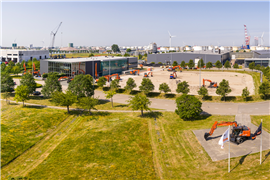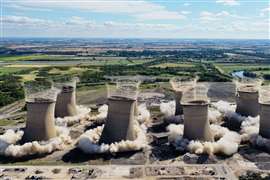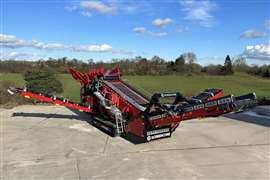EU extends Stage V emissions deadline
15 July 2020

The European Parliament has backed a delay in the implementation of a major Stage V engine emissions regulation.
The original EU regulation (2016/1628) required a transition for non-road mobile machinery (NRMM) to Stage V engines in the power categories up to 56kW and equal to or above 130kW, by 31 December 2020.
The amendment – brought about by the impact of the coronavirus pandemic – gives equipment manufacturers an additional year to bring their modified equipment to market (31 December 2021).
The decision has been roundly welcomed by the industry and follows lobbying from industry associations, including the Committee for European Construction Equipment (CECE) and the European federation for materials handling (FEM).
CECE Secretary General Riccardo Viaggi said: “The Parliament’s vote was vital to prevent further economic damage caused by the COVID-19 pandemic to our manufacturing industries and protect thousands of qualified jobs that depend on them.
“Neutral from an environmental perspective, this measure will not soften the stringency of the European legislation. Instead, it will give our industry the necessary time to install transition engines, already acquired, in machines, place them on the market and be compliant with ever more demanding requirements. On the opposite, inaction would have led to unnecessary waste of raw materials and resources, in addition to the financial costs.”
Although the revised legislation will come into effect after the UK’s exit from the European Union, It will nonetheless be adopted automatically into UK law.
In March, the Construction Equipment Association (CEA) highlighted the regulation’s transition date as an issue, when the initial problems with hold-ups in the supply chain caused by Covid-19 were reported.
CEA Chief Executive, Rob Oliver, stated, “The original rules meant that even if manufacturers had engines ready and waiting to be installed, unless they could be incorporated into the fully assembled machines by the deadline they would have to be scrapped.
”Our senior technical consultant, Dale Camsell, did a great job as part of the industry team that worked with the European Commission and European Parliamentarians, to navigate the intricacies of EU decision-making. Several official European forums had to be persuaded of the urgency of the problem and the fact that a postponement would not compromise the environmental objectives of the emission regulations.
”In the end, the case presented by CECE and our allies in other sectors finally got the necessary legal changes over the line. This has saved manufacturers across Europe significant sums at a time when businesses have been knocked sideways by Covid-19.”
CONNECT WITH THE TEAM








